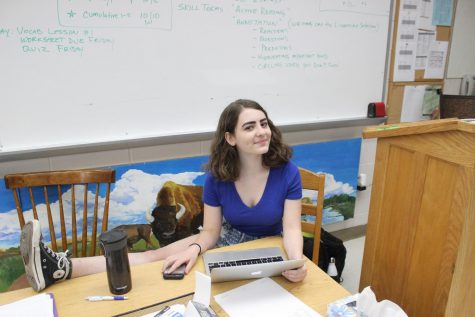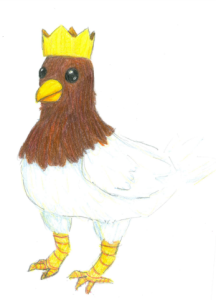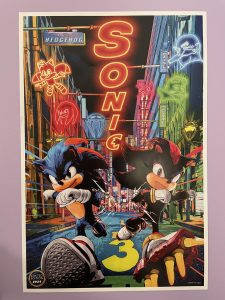Spring Awakening actors talk disability in the arts
May 31, 2017
The University of California at Los Angeles (UCLA) hosted a Disability Studies Conference on April 12-14 to celebrate 10 years of the UCLA Disability Studies program. The theme of the conference was “Disability as Spectacle.”
One keynote address of the conference was a panel discussion from members of the cast and creative team from Deaf West Theater’s production of Steven Sater’s and Duncan Sheik’s musical Spring Awakening. The show closed on Broadway in Jan. 2016 and garnered three Tony nominations, including Best Revival of a Musical.
Deaf West is a Los Angeles-based theater institution that offers productions that are performed in American Sign Language (ASL) and English.
The Broadway revival of Spring Awakening was unique because the cast was composed of both hearing and deaf actors, and was performed in ASL and spoken English simultaneously. It also marked the debut of Ali Stroker, the first actor in a wheelchair on Broadway.
Members of the cast and creative team spoke or signed at a panel highlighting their experiences while working on the show. One of the main points emphasized at the panel was how it was crucial for a creative team to give differently abled people the representation they deserve in the media, whether on film, television, or in live theatre.
“I think it’s just looking for opportunities, not only for actors but everyone involved in production (with many different abilities, whether it’s deafness or otherwise), to be involved and trying to open up our ideas of what a character should be,” said Spring Awakening’s Tony-nominated director Michael Arden. “Why can’t this character in a film I wrote, even though I didn’t write them as deaf, what about a deaf actor for that role?”
Arden used this philosophy, not only in creating Deaf West’s Spring Awakening, but also in casting Stroker. The creative team had not originally planned on casting an actor in a wheelchair, but were impressed by Stroker’s audition and later gave her the supporting role of Anna.
Another point made was that being open-minded about diversity is not only important for casting directors, but also for hearing actors.
“With any minority, or anybody with a disability, whatever it is…so much of their platform tends to be taken over by people…like how the straight community voiced out for the gay community,” said Daniel David Stewart, who played the voice of the deaf character Ernst in the production. “And I think so much of it is stepping off the pedestal and giving the pedestal to the people who can actually represent it authentically. Like Michael and everyone talked about up there. It’s so important, at least for me, to have authentic representation in film of these people.”
Authentic representation comes from having actors who are a member of a minority play a character who is part of the same minority. In many instances, minority roles are given to actors who are straight, white, cisgender, hearing, or able-bodied.
A few examples of this include Scarlett Johansson, a white actress, playing a character who was originally written as Japanese in Ghost in the Shell; Eddie Redmayne, a cisgender actor, playing a transgender character in The Danish Girl; and Sam Claflin, an abled actor, playing a quadriplegic character in Me Before You.
This is why Spring Awakening was so groundbreaking and why it is important for people in film, television, and live theater to be inclusive of diversity.
“I can see 100% accessibility for the deaf and disabled actors/actresses,” wrote Miles Barbee, a Deaf actor who played the role of Otto in the show. “I hope people will be open and include deaf/disability in the arts.”
“Create the ‘new normal’ where everyone is just everyone,” wrote Deaf actress Sandra Mae Frank, who starred as Wendla, on what she saw for the future of diversity in the arts.
While shows like Spring Awakening show the world how much deaf and disabled actors can accomplish when given the opportunity, people in the industry believe there is still a long way to go.
“I feel that the art of sign language in TV and film and theater is young–we have a long road ahead of us,” wrote DJ Kurs, the artistic director of Deaf West. “With any luck, we’ll continue to create art and to bring ourselves forth in this universe.”







